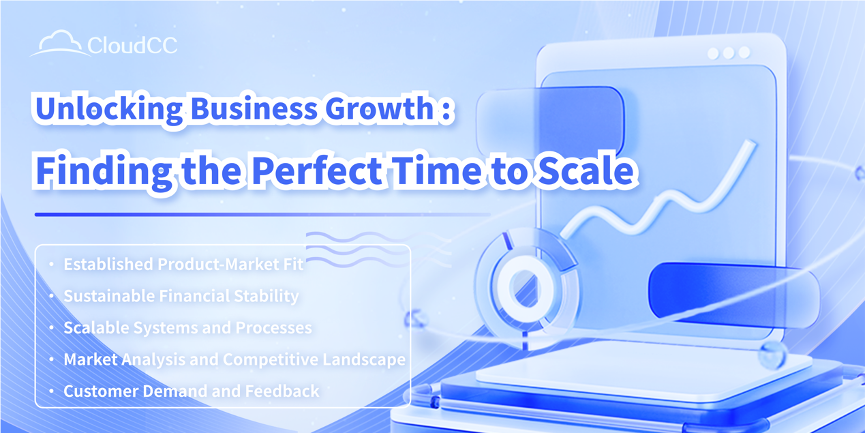
Unlocking Business Growth: Finding the Perfect Time to Scale
December 04 2023Scaling a business is an exciting and pivotal moment for entrepreneurs. It signifies growth, increased market share, and the potential for greater profitability. However, determining the right time to scale is a critical decision that requires careful consideration. In this article, we will explore the key factors to help you identify the opportune moment for your business to embark on its scaling journey.
5 Signals That It’s Time To Start Scaling
Established Product-Market Fit:
Before scaling, it is crucial to ensure that your product or service has achieved a strong product-market fit. This means that there is a substantial demand for what you offer, and your target market has validated the value proposition. Look for indicators such as consistent sales, positive customer feedback, and repeat business. Scaling without a solid product-market fit can lead to inefficiencies and wasted resources.
Sustainable Financial Stability:
Adequate financial stability is a prerequisite for successful scaling. Evaluate your financial position, including revenue, profit margins, and cash flow. Ensure that you have a clear understanding of your cost structure and scalability potential. Consider whether your profit margins can sustain growth initiatives and if you have access to additional funding options if needed. Without financial stability, scaling can strain your resources and hinder long-term success.
Scalable Systems and Processes:
Efficient systems and processes are the backbone of scalable businesses. Evaluate your current operations and determine if they are replicable, automated, and capable of handling increased demand. Implement scalable technologies, such as cloud-based solutions, to streamline your operations. Evaluate your team's capacity and identify any skill gaps that may impede growth. Building a solid foundation ensures that scaling won't compromise quality or customer satisfaction.
Market Analysis and Competitive Landscape:
Conduct a thorough analysis of your market and competitive landscape. Identify trends, emerging opportunities, and potential threats. Assess the level of competition and your unique selling proposition. Scaling in a saturated market or without a clear differentiator can be challenging. Look for untapped niches or ways to differentiate your offering to gain a competitive edge before scaling.
Customer Demand and Feedback:
Pay close attention to customer demand and feedback. Are you consistently receiving requests for expansion or new features? Engage with customers to understand their pain points and anticipate their future needs. Scaling should align with the growing demands of your customer base. Prioritize customer satisfaction and leverage their feedback to drive your scaling strategy.
Scaling is not a one-size-fits-all approach
Scaling a business requires strategic planning, analysis, and careful timing. It is essential to have a solid product-market fit, sustainable financial stability, scalable systems and processes, market analysis, and customer demand before embarking on the scaling journey. By understanding these key factors and finding the right time to scale, you can unlock the full potential of your business and achieve long-term success.
Remember, scaling is not a one-size-fits-all approach. Each business has its unique characteristics and growth trajectory. Consider seeking guidance from industry experts or mentors who can provide valuable insights tailored to your specific situation. With the right preparation and execution, your business can flourish and thrive in an expanded marketplace.









